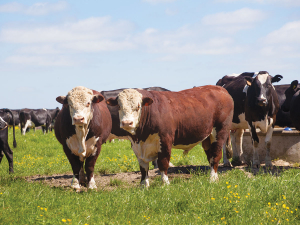Hit the ground running this mating with these foundations for success.
There are many ways to tailor your mating programme to ensure your cows have the best mating this season. However, the following three foundations are key to giving you the best chance of hitting your mating goals.
Monitor your herd's body condition score
Cows calving in body condition score 5.0 for mature cows, and 5.5 for first- and second-calvers, have substantially better reproductive performance than cows in lower body condition score. Switching to once-a-day milking in middle to late lactation can reduce condition score loss if done early enough. Cows, especially first-calvers, milked once a day from calving, may achieve higher submission rates and in-calf rates with fewer non-cycling treatments, than if milked twice a day.
Maximise heat detection performance
Pre-mating cycling rate is like the herd’s submission rate in the three to four weeks before mating even starts. If you get 85% of cows cycling pre-mating, you should achieve a 90% 3-week submission rate to artificial insemination, along with a good conception rate.
The 3-week submission rate of your early-calved mature cows is a useful indicator of heat detection performance. Top farms achieve a 95% 3-week submission rate for the early-calved mature cows. If less than 90%, this is a strong indicator that heat detection rates are low, and reviewing your mating strategies should be a high priority.
For more advice, head over to dairynz. co.nz/heatdetection, or reach out to your local DairyNZ regional team or breeding company.
Motivate the team
Use the three weeks before the planned start of mating as an opportunity to upskill your team members, and get them to start identifying and recording cows in heat. You could even use a WhatsApp or Facebook group chat for everyone to list identified cows in heat. Encourage staff to take their time when in the paddock or sitting behind the cows to observe and record cows in heat.
Get your team involved by setting a target for a 3-week submission rate or 6-week in-calf rate, and report on the progress throughout mating to keep the team involved. Communicate the mating targets you would like to hit this season and celebrate the wins.
You can also check out DairyNZ’s The InCalf book for eight key management areas for improving herd reproduction at dairynz.co.nz/incalf.
Article kindly supplied by DairyNZ – previously published in Inside Dairy.

















